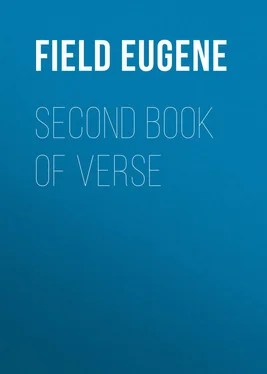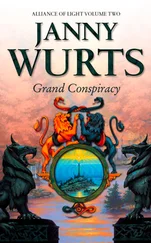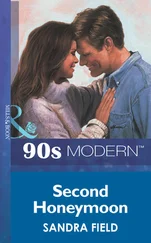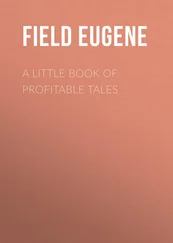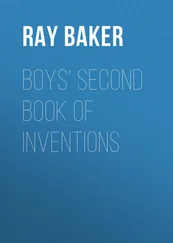Eugene Field - Second Book of Verse
Здесь есть возможность читать онлайн «Eugene Field - Second Book of Verse» — ознакомительный отрывок электронной книги совершенно бесплатно, а после прочтения отрывка купить полную версию. В некоторых случаях можно слушать аудио, скачать через торрент в формате fb2 и присутствует краткое содержание. Жанр: literature_19, Поэзия, foreign_antique, foreign_prose, foreign_poetry, на английском языке. Описание произведения, (предисловие) а так же отзывы посетителей доступны на портале библиотеки ЛибКат.
- Название:Second Book of Verse
- Автор:
- Жанр:
- Год:неизвестен
- ISBN:нет данных
- Рейтинг книги:4 / 5. Голосов: 1
-
Избранное:Добавить в избранное
- Отзывы:
-
Ваша оценка:
- 80
- 1
- 2
- 3
- 4
- 5
Second Book of Verse: краткое содержание, описание и аннотация
Предлагаем к чтению аннотацию, описание, краткое содержание или предисловие (зависит от того, что написал сам автор книги «Second Book of Verse»). Если вы не нашли необходимую информацию о книге — напишите в комментариях, мы постараемся отыскать её.
Second Book of Verse — читать онлайн ознакомительный отрывок
Ниже представлен текст книги, разбитый по страницам. Система сохранения места последней прочитанной страницы, позволяет с удобством читать онлайн бесплатно книгу «Second Book of Verse», без необходимости каждый раз заново искать на чём Вы остановились. Поставьте закладку, и сможете в любой момент перейти на страницу, на которой закончили чтение.
Интервал:
Закладка:
THE CLINK OF THE ICE
NOTABLY fond of music, I dote on a sweeter tone
Than ever the harp has uttered or ever the lute has known.
When I wake at five in the morning with a feeling in my head
Suggestive of mild excesses before I retired to bed;
When a small but fierce volcano vexes me sore inside,
And my throat and mouth are furred with a fur that seemeth a buffalo hide, —
How gracious those dews of solace that over my senses fall
At the clink of the ice in the pitcher the boy brings up the hall!
Oh, is it the gaudy ballet, with features I cannot name,
That kindles in virile bosoms that slow but devouring flame?
Or is it the midnight supper, eaten before we retire,
That presently by combustion setteth us all afire?
Or is it the cheery magnum? – nay, I'll not chide the cup
That makes the meekest mortal anxious to whoop things up:
Yet, what the cause soever, relief comes when we call, —
Relief with that rapturous clinkety-clink that clinketh alike for all.
I've dreamt of the fiery furnace that was one vast bulk of flame,
And that I was Abednego a-wallowing in that same;
And I've dreamt I was a crater, possessed of a mad desire
To vomit molten lava, and to snort big gobs of fire;
I've dreamt I was Roman candles and rockets that fizzed and screamed, —
In short, I have dreamt the cussedest dreams that ever a human dreamed:
But all the red-hot fancies were scattered quick as a wink
When the spirit within that pitcher went clinking its clinkety-clink.
Boy, why so slow in coming with that gracious, saving cup?
Oh, haste thee to the succor of the man who is burning up!
See how the ice bobs up and down, as if it wildly strove
To reach its grace to the wretch who feels like a red-hot kitchen stove!
The piteous clinks it clinks methinks should thrill you through and through:
An erring soul is wanting drink, and he wants it p. d. q.!
And, lo! the honest pitcher, too, falls in so dire a fret
That its pallid form is presently bedewed with a chilly sweat.
May blessings be showered upon the man who first devised this drink
That happens along at five a. m. with its rapturous clinkety-clink!
I never have felt the cooling flood go sizzling down my throat
But what I vowed to hymn a hymn to that clinkety-clink devote;
So now, in the prime of my manhood, I polish this lyric gem
For the uses of all good fellows who are thirsty at five a. m.,
But specially for those fellows who have known the pleasing thrall
Of the clink of the ice in the pitcher the boy brings up the hall.
THE BELLS OF NOTRE DAME
WHAT though the radiant thoroughfare
Teems with a noisy throng?
What though men bandy everywhere
The ribald jest and song?
Over the din of oaths and cries
Broodeth a wondrous calm,
And mid that solemn stillness rise
The bells of Notre Dame.
"Heed not, dear Lord," they seem to say,
"Thy weak and erring child;
And thou, O gentle Mother, pray
That God be reconciled;
And on mankind, O Christ, our King,
Pour out Thy gracious balm," —
'Tis thus they plead and thus they sing,
Those bells of Notre Dame.
And so, methinks, God, bending down
To ken the things of earth,
Heeds not the mockery of the town
Or cries of ribald mirth;
For ever soundeth in His ears
A penitential psalm, —
'T is thy angelic voice He hears,
O bells of Notre Dame!
Plead on, O bells, that thy sweet voice
May still forever be
An intercession to rejoice
Benign divinity;
And that thy tuneful grace may fall
Like dew, a quickening balm,
Upon the arid hearts of all,
O bells of Notre Dame!
LOVER'S LANE, SAINT JO
SAINT JO, Buchanan County,
Is leagues and leagues away;
And I sit in the gloom of this rented room,
And pine to be there to-day.
Yes, with London fog around me
And the bustling to and fro,
I am fretting to be across the sea
In Lover's Lane, Saint Jo.
I would have a brown-eyed maiden
Go driving once again;
And I'd sing the song, as we snailed along,
That I sung to that maiden then:
I purposely say, "as we snailed along,"
For a proper horse goes slow
In those leafy aisles, where Cupid smiles,
In Lover's Lane, Saint Jo.
From her boudoir in the alders
Would peep a lynx-eyed thrush,
And we'd hear her say, in a furtive way,
To the noisy cricket, "Hush!"
To think that the curious creature
Should crane her neck to know
The various things one says and sings
In Lover's Lane, Saint Jo!
But the maples they should shield us
From the gossips of the place;
Nor should the sun, except by pun,
Profane the maiden's face;
And the girl should do the driving,
For a fellow can't, you know,
Unless he's neglectful of what's quite respectful
In Lover's Lane, Saint Jo.
Ah! sweet the hours of springtime,
When the heart inclines to woo,
And it's deemed all right for the callow wight
To do what he wants to do;
But cruel the age of winter,
When the way of the world says no
To the hoary men who would woo again
In Lover's Lane, Saint Jo!
In the Union Bank of London
Are forty pounds or more,
Which I'm like to spend, ere the month shall end,
In an antiquarian store;
But I'd give it all, and gladly,
If for an hour or so
I could feel the grace of a distant place, —
Of Lover's Lane, Saint Jo.
Let us sit awhile, beloved,
And dream of the good old days, —
Of the kindly shade which the maples made
Round the stanch but squeaky chaise;
With your head upon my shoulder,
And my arm about you so,
Though exiles, we shall seem to be
In Lover's Lane, Saint Jo.
CRUMPETS AND TEA
THERE are happenings in life that are destined to rise
Like dear, hallowed visions before a man's eyes;
And the passage of years shall not dim in the least
The glory and joy of our Sabbath-day feast, —
The Sabbath-day luncheon that's spread for us three, —
My worthy companions, Teresa and Leigh,
And me, all so hungry for crumpets and tea.
There are cynics who say with invidious zest
That a crumpet's a thing that will never digest;
But I happen to know that a crumpet is prime
For digestion, if only you give it its time.
Or if, by a chance, it should not quite agree,
Why, who would begrudge a physician his fee
For plying his trade upon crumpets and tea?
To toast crumpets quite à la mode , I require
A proper long fork and a proper quick fire;
And when they are browned, without further ado,
I put on the butter, that soaks through and through.
And meantime Teresa, directed by Leigh,
Compounds and pours out a rich brew for us three;
And so we sit down to our crumpets – and tea.
A hand-organ grinds in the street a weird bit, —
Confound those Italians! I wish they would quit
Interrupting our feast with their dolorous airs,
Suggestive of climbing the heavenly stairs.
(It's thoughts of the future, as all will agree,
That we fain would dismiss from our bosoms when we
Sit down to discussion of crumpets and tea!)
The Sabbath-day luncheon whereof I now speak
Quite answers its purpose the rest of the week;
Yet with the next Sabbath I wait for the bell
Announcing the man who has crumpets to sell;
Then I scuttle downstairs in a frenzy of glee,
And purchase for sixpence enough for us three,
Who hunger and hanker for crumpets and tea.
Интервал:
Закладка:
Похожие книги на «Second Book of Verse»
Представляем Вашему вниманию похожие книги на «Second Book of Verse» списком для выбора. Мы отобрали схожую по названию и смыслу литературу в надежде предоставить читателям больше вариантов отыскать новые, интересные, ещё непрочитанные произведения.
Обсуждение, отзывы о книге «Second Book of Verse» и просто собственные мнения читателей. Оставьте ваши комментарии, напишите, что Вы думаете о произведении, его смысле или главных героях. Укажите что конкретно понравилось, а что нет, и почему Вы так считаете.
